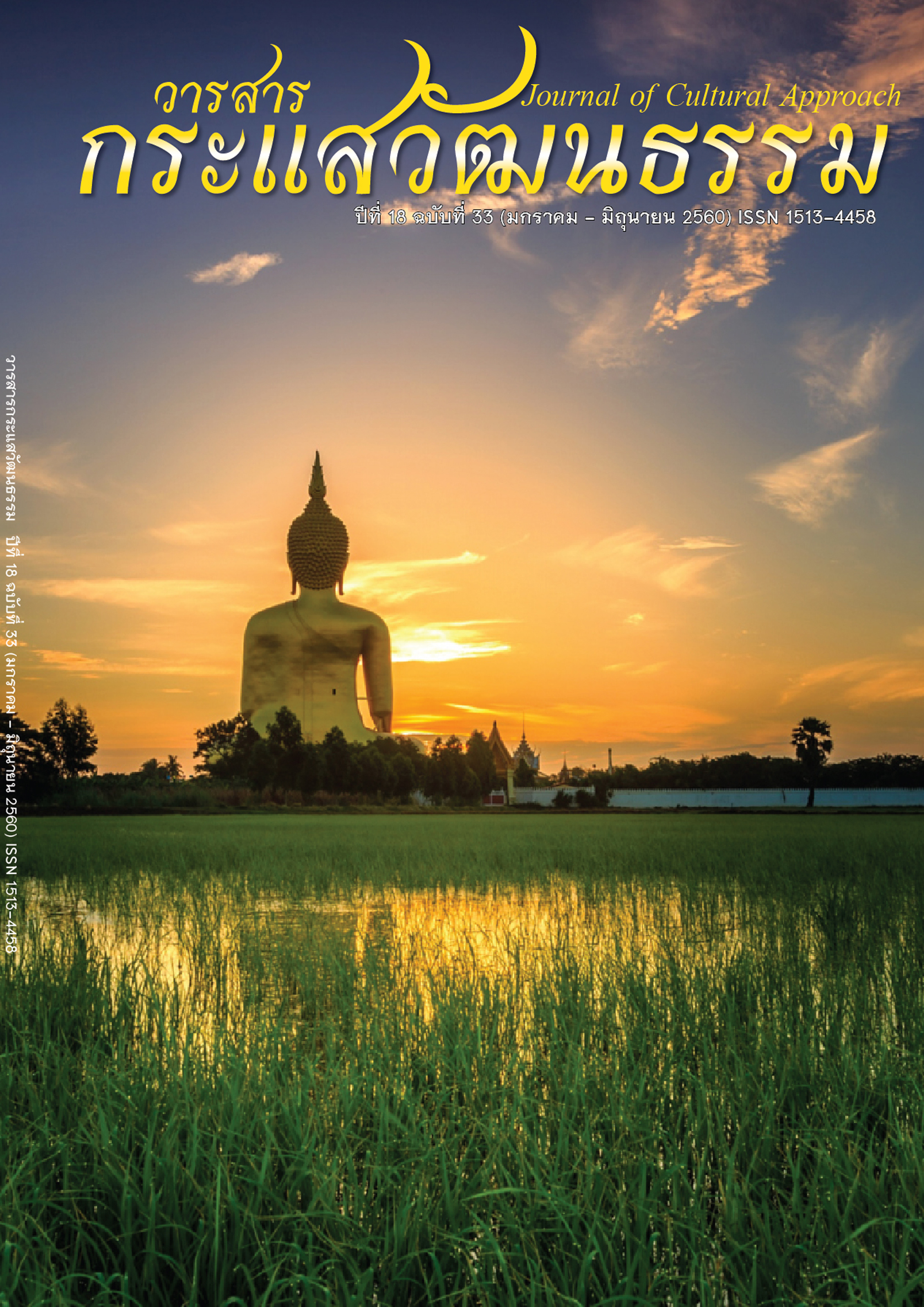The Asking for the Return in Thai: A Study of Linguistic Strategies and Native Speakers’ Motivational Concerns
Main Article Content
Abstract
This research article aims to study linguistic strategies that Thai people adopted to express asking for the return of a borrowed item, as well as to study native speakers’ motivational concerns while performing the act. The results indicate that Thai speakers adopted mitigating strategies more frequently than bold-on record strategies. An analysis of native speaker’ motivational concerns reveals that there are two types of motivational concerns: 1) Motivational concerns relating to the purpose of conversation. 2) Motivational concerns relating to the context of conversation. It found that Thai speakers place a priority on keeping relationship with the interlocutor. This linguistics behavior might be motivated by three sociocultural factors: 1) an interdependent view of self, 2) Collectivism, and 3) High context culture.
Article Details
Proposed Creative Commons Copyright Notices
1. Proposed Policy for Journals That Offer Open Access
Authors who publish with this journal agree to the following terms:
- Authors retain copyright and grant the journal right of first publication with the work simultaneously licensed under a Creative Commons Attribution License that allows others to share the work with an acknowledgement of the work's authorship and initial publication in this journal.
- Authors are able to enter into separate, additional contractual arrangements for the non-exclusive distribution of the journal's published version of the work (e.g., post it to an institutional repository or publish it in a book), with an acknowledgement of its initial publication in this journal.
- Authors are permitted and encouraged to post their work online (e.g., in institutional repositories or on their website) prior to and during the submission process, as it can lead to productive exchanges, as well as earlier and greater citation of published work (See The Effect of Open Access).
Proposed Policy for Journals That Offer Delayed Open Access
Authors who publish with this journal agree to the following terms:
- Authors retain copyright and grant the journal right of first publication, with the work [SPECIFY PERIOD OF TIME] after publication simultaneously licensed under a Creative Commons Attribution License that allows others to share the work with an acknowledgement of the work's authorship and initial publication in this journal.
- Authors are able to enter into separate, additional contractual arrangements for the non-exclusive distribution of the journal's published version of the work (e.g., post it to an institutional repository or publish it in a book), with an acknowledgement of its initial publication in this journal.
- Authors are permitted and encouraged to post their work online (e.g., in institutional repositories or on their website) prior to and during the submission process, as it can lead to productive exchanges, as well as earlier and greater citation of published work (See The Effect of Open Access).
References
[2] Hanks, W. F., Sachiko, I., & Yasuhiro, K. (2009). Introduction towards An Emancipatory Pragmatics. Journal of Pragmatics, 41, 1-9.
[3] Hofstede, G. (1984). Culture's Consequences: International Differences in Work-related Values. Beverly Hills: Sage Pub.
[4] Hofstede, G. (1987). Culture's Consequences: International Differences in Work-related Values. Beverly Hills: Sage Pub.
[5] Klauser, W. J. (1981). Reflections on Thai Culture. Bangkok: Suksit Siam.
[6] Markus, H. R., & Kitayama, S. (1991). Culture and the Self: Implications for Cognition, Emotion, and Motivation. Psychological Review, 98(2), 224-253.
[7] Mulder, N. (1996). Inside Thai Society: An Interpretations of Everyday Life. Amsterdam: Pepin Press.
[8] Panpothong, Natthaporn. (2012). Pragmatics in Thai. (Unpublished).
[9] Pongsapich, Amara. (1998). Traditional and Changing Thai World View. Bangkok: Chulalongkorn University Press.
[10] Roongrengsuke, Siriyupa., & Chansuthus, Daryl. (1998). Conflict Management in Thailand. In K. Leung and D. Tjosvold (Eds.), Conflict Management in the Asia Pacific Assumptions and Approaches in Diverse Culture, (pp. 67-221). Singapore: Wiley.
[11] Triandis, H. C. (1995). Individualism and Collectivism. Boulder: Westview Press.
[12] Yaowarittha, Chanwit. (2011). The Concept of "Bunkhun" and Three Types of Speech Acts in Thai Society. Chulalongkorn University, Bangkok.


